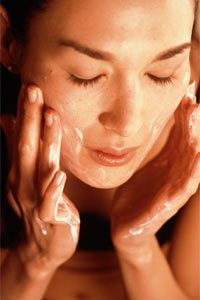Sensitive skin is a common problem for people -- it's so common, in fact, that drugstores are filled with products that promise to soothe and smooth. But do these products improve skin health for everyone with sensitive skin?
Unfortunately, no two types of skin are alike. Dermatologists recognize four types of sensitive skin: acne, rosacea, skin that stings upon product use and skin affected by allergies [source:American Academy of Dermatology]. Even these four types of skin are radically different. Skin with acne tends to have high levels of oil and bacteria, and products that add oil to the skin can potentially made it worse. Rosacea, a condition characterized by flushing of the skin or broken and inflamed blood vessels underneath the surface, may require more serious dermatological treatments. And allergic reactions, as with all types of sensitive skin conditions, may require a visit to a dermatologist for testing and antibiotic medications.
Advertisement
Age and ethnicity further complicate the process of finding an appropriate skin care product. Skin changes with age, and different ethnicities experience distinct skin conditions [source: Draelos]. So it's not surprising that no single skin care product can solve the needs of every person with sensitive skin.
Finding the right skin care products to meet your individual needs can be tricky and will likely involve a lot of trial and error. It's best to try a variety of products. If you are interested in particular treatment or a customized skin care regimen, ask a dermatologist.
一个适当的皮肤护理方案将包括克丽nsing to rid the skin of irritants and protection from future damage. This article will help you discover how to best care for sensitive skin. First up, you'll learn about the best ways to cleanse sensitive skin.
Advertisement




